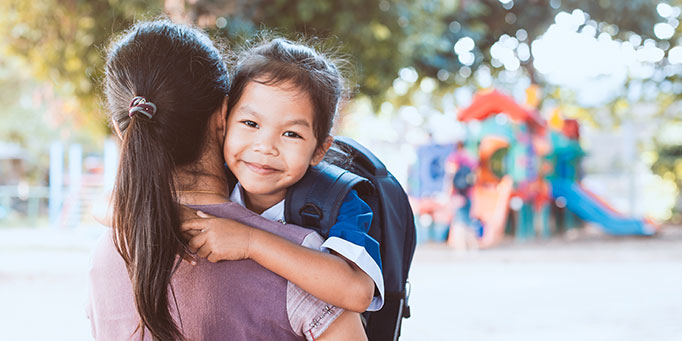My treasured child,
I’m sorry that you missed out on getting an award at school this year. I can see that you’re really disappointed. It’s OK to feel sad—that just means that this was important to you. I’d love you to tell me more about how you’re feeling.
I know it’s hard to see your best friends going up on stage, or your siblings, and being the one still sitting down in the crowd. I am so proud of the way you clapped your friends and congratulated them. Being a good friend means celebrating their achievements and being proud of them. Try to put aside your feelings of envy and remember how hard your friends and classmates have worked to achieve those results. You never know how much they might have needed this encouragement right now. Many of them have had their own struggles to overcome.
You have been a great friend this year: you are caring, thoughtful, encouraging and fun. I know your friends really love being around you; you are always there to support each other. Being a good friend is one of the most important skills for life. But unfortunately, it is not one of the things that gets recognised on speech day. Here are some other things that won’t get you an award, but I believe are even more important than being the best at school:
– helping out at home
– looking after your little brother
– trying your best at school
– practising self-control
– being kind, generous and forgiving
– learning a new skill like cooking
– practising your instrument
– doing something creative
– making people laugh
– growing in your faith in God.
I am really proud of who you are, even if there’s no award for that at school. We know from the Bible that in God’s eyes, our character is more important than our awards and achievements.
‘The Lord does not look at the things people look at. People look at the outward appearance, but the Lord looks at the heart.’ (1 Samuel 16:7)
Only a few children get those top awards each year. Most children are like you—simply doing their best without being recognised up the front. In life, it’s really important to try hard and do the right thing, even if you don’t get any ‘reward’ for it. It’s also really important to develop a love for learning new things simply for the joy of it. It’s amazing to think of all the things you have learnt this year that you didn’t know last year. Let’s celebrate that!
I am so proud of the effort you have put into school this year. You have tried new things and challenged yourself. Nobody else knows what it took to keep persevering, even when it was hard.
If there is one area you would like to work on for next year, I will support you. We can help you to practise reading or maths, spelling, sport or music, if that’s a goal you want to set for yourself. But let’s aim for learning and self-confidence, not for rewards.
Even if you sit here again next year, clapping others but getting no awards for yourself, I will be proud of you. We all face disappointments in life, especially when we feel that our efforts aren’t being recognised. But what matters most is what we do with our disappointments. Let’s take a moment to feel sad, but then let’s get back up again together. Let’s take this chance to celebrate with your friends. And let’s take pride in what you have been learning and, most importantly, who you have been becoming this year.
From your loving and very proud mum.
This article originally appeared at Growing Faith, a Christian online magazine for parents. Find out more about Growing Faith and subscribe to our monthly e-newsletter here.


